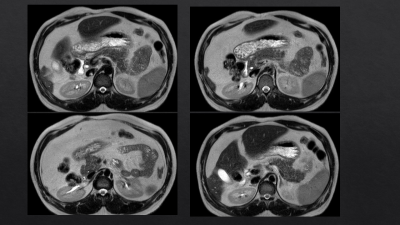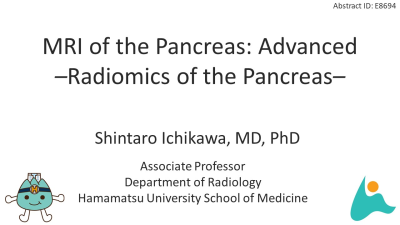Sunrise Course
Hot Topics in Body MRI: MRI of the Pancreas
Joint Annual Meeting ISMRM-ESMRMB & ISMRT 31st Annual Meeting • 07-12 May 2022 • London, UK

| 08:00 |  |
MRI of the Pancreas: Basics
Sikandar Shaikh
MRI is the important modality for the evaluation of the Pancreas. It has significant role in the evaluation of various pancreatic pathologies comprising of the congenital, infective, inflammation, neoplastic, traumatic, and miscellaneous pathologies. This is also important screening tool for differentiating the indeterminate pancreatic focal lesions like focal pancreatitis versus neoplastic. MRI using magnetic resonance cholangiopancreatography (MRCP) also evaluates associated hepatobiliary pancreatic pathologies. Due to technical advances in MRI, newer sequences as well as protocols like diffusion-weighted and T1-weighted dynamic contrast-enhanced MRI are used despite of various challenges of retroperitoneal location of the Pancreas.
|
|
| 08:30 |  |
MRI of the Pancreas: Advanced -Radiomics of the Pancreas-
Shintaro Ichikawa
Characterization of pancreatic diseases may be challenging because of some overlap in imaging appearance. To overcome the current limitations of imaging, researchers have developed radiomics. Radiomics refers to the extraction and analysis of quantitative features from medical images to build predictive models, relating imaging features to clinical outcomes. Most radiomics studies of pancreatic diseases used CT data; however, MRI-based radiomics of the pancreas is increasing in recent years. Several studies have assessed the potential of radiomics in the diagnosis of pancreatic tumors, prediction of tumor grade, prediction of recurrence or complications after surgery, and assessment of chronic pancreatitis.
|
The International Society for Magnetic Resonance in Medicine is accredited by the Accreditation Council for Continuing Medical Education to provide continuing medical education for physicians.